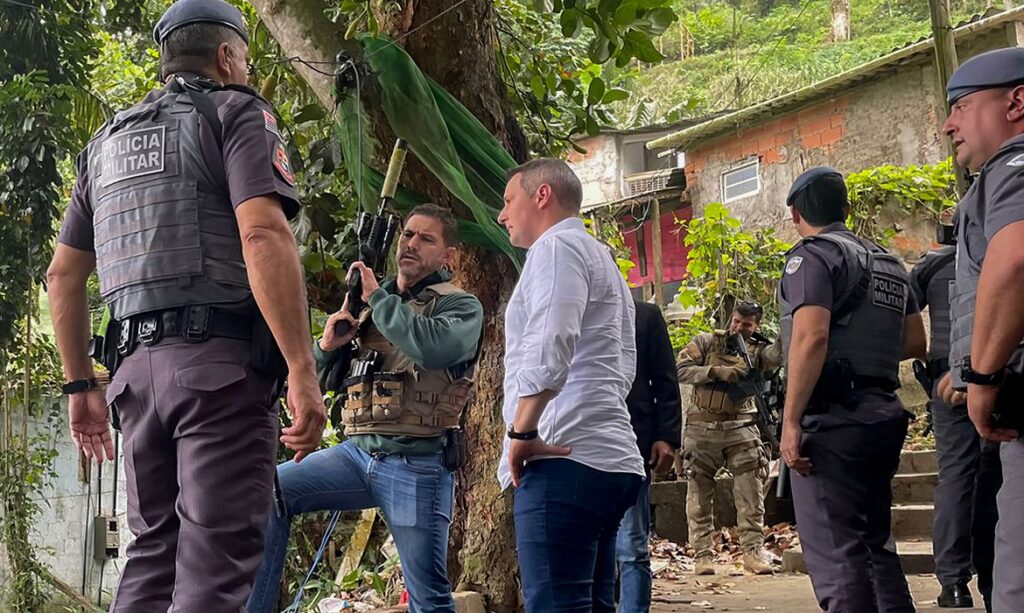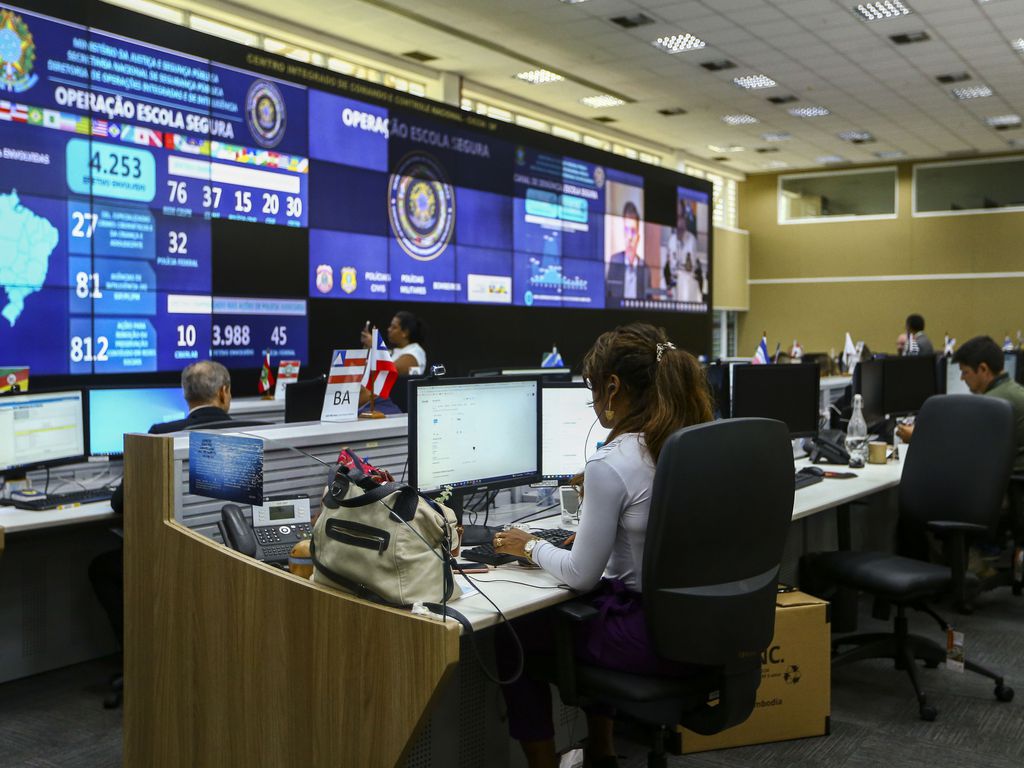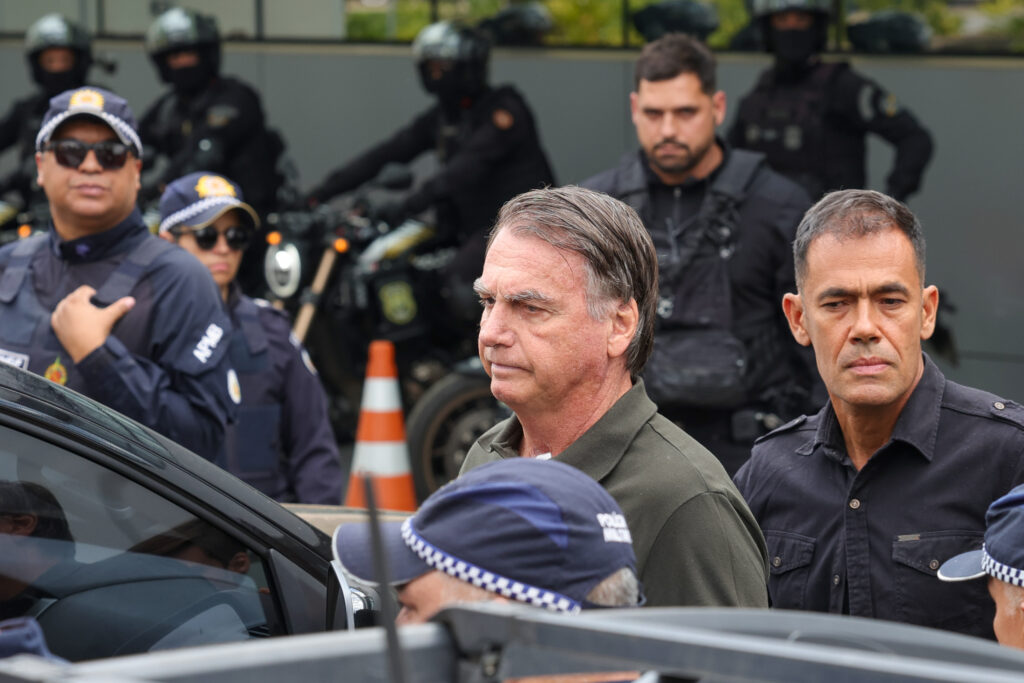Last night saw eight of Brazil’s presidential candidates go head-to-head in the first edition of debates ahead of this October’s elections.
Described as “tepid” by news outlet Poder 360, some candidates seemed tentative as they made their debuts in the first live debate broadcast, which was covered by TV Band.
Lula da Silva, who is currently leading the popularity polls, remains in prison serving a corruption sentence and was therefore banned from taking part. Although Lula has vowed to launch his candidacy on August 15, it is unlikely he will be acquitted of charges in time for the first round of voting in October.
In Lula’s absence, second-most popular candidate and former military officer Jair Bolsonaro spent most of the debate criticising his rival candidates, claiming that he would be Brazil’s first President to leave communism and socialism behind.
The right-wing PSL candidate’s toughest criticism came from fellow candidate Guilherme Boulos, who accused him of being “racist, sexist and homophobic.” Hearing this, Bolsonaro responded that he was not prepared to “waste his breath on an under-qualified citizen,” maintaining that he did not plan to govern a society divided between heterosexuals and homosexuals, nor whites and blacks.
Although PSDB candidate Geraldo Alckmin has been criticised for his alliance with centrist political party bloc Centrão, he maintained it was a necessary move in order for him to gain an overall majority in October’s elections.
Sticking firmly to his slogan “employment and income,” Alckmin’s speech was based on proposals to regenerate Brazil’s economy, which has for a long time been gripped by recession, worsened by trucker strikes earlier this year.
Alckmin also emphasised that he did not intend to do away with the controversial social welfare programme bolsa família, introduced under ex-President Lula da Silva to reduce short-term poverty by offering cash transfers to the poorest sectors of Brazil’s population.
“We even plan to expand on the bolsa família,” he said. “We are going to use the Bolsa Banqueiro to help expand social programmes.”
Similarly, PDT candidate Ciro Gomes outlined his intentions to reduce Brazil’s unemployment rates. Detailing his plans to employ people to work on the vast numbers of construction sites that are largely abandoned, Gomes pledged to create two million jobs in his first year as President.
RELATED: Five presidential candidates officially confirmed for Brazil’s October elections
“The way forward is to fix the development motors, which are currently stifled. Today, we have 63 million people in debt… I am going to help them to pay their debts off,” he vowed.
Gomes also emphasised that he intended to stray as far as possible from current President Michel Temer’s policies.
In contrast, Green Party candidate Marina Silva, who is among the favourites for this election, spoke about how she intended to prioritise dealing with inequalities in education. Herself illiterate until the age of 16, she shared personal experiences with fellow candidates, “education makes a difference, I am proof of this. I learnt to read and write aged 16 and today I am a history lecturer and Acre Federal University.”
When questioned on the current controversial discussions around abortion, however, she stated that she would support current legislation and if any more calls were made to change it she vowed to put the vote to a plebiscite.
Notably, Podemos candidate Álvaro Dias mentioned several times that he would invite judge Sérgio Moro to be Minister of Justice if he were to be President. Moro is famously the judge in charge of ongoing Lava Jato corruption investigations.
Dias also underlined the importance of a female presence in politics, calling for “protagonism” and pointing out that merely defending women’s rights wasn’t enough to see any change.
Meanwhile, MDB candidate Henrique Meirelles found himself largely ignored during the debate and when his fellow candidates did ask him questions they tended to revolve around his role in current President Temer’s government.
Meirelles tried his best to take arguments above and beyond his relation to the current President, however, insisting he was a candidate of “employment, income and growth,” bringing the conversation back to the time he worked as part of ex-President Lula’s government whenever possible.
Patriota candidate Cabo Daciolo, on the other hand, spoke of his plans to audit public debt with religiously-driven undertones, beginning and ending most statements with “glory to God” and finishing his speech with a passage from the Bible.
However, after his accusations against right-wing Bolsonaro, PSOL candidate Boulos won the award for most confrontational candidate of the night. He went on to accuse the other candidates of being but mere representatives and allies of Temer’s government, ironically adding that the debate resembled something of “50 shades of Temer.”
On a more serious note, however, Boulos outlined his proposals to revoke labour reform if elected. “The working and middle classes are what keep Brazil going,” he said.
Perhaps controversially, he was also the only candidate to mention Lula’s absence, claiming it unjust that he was in prison whilst President Temer is free in Brasilia.
Debates between the presidential candidates will take place throughout the rest of August and September, and will be broadcast on a variety of different Brazilian television channels, ending with a final showdown to be broadcast by TV Globo before voting begins in October.










